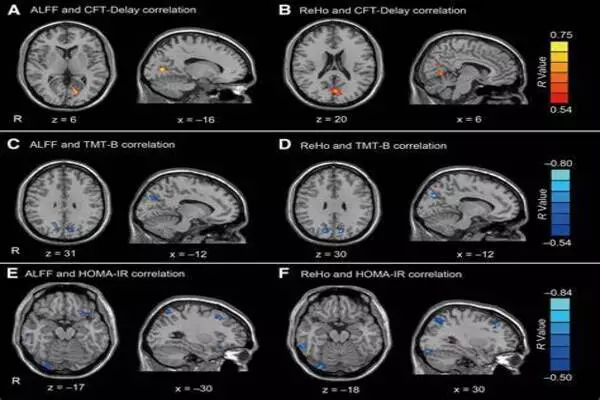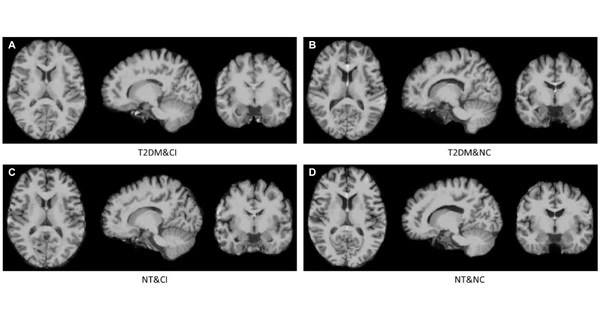Diabetes, particularly poorly controlled diabetes, has been demonstrated in studies to have an effect on both the structure and function of the brain, as measured by magnetic resonance imaging (MRI). Several studies have revealed that people with diabetes, particularly type 2 diabetes, may experience more brain shrinkage over time than those who do not have diabetes. Brain atrophy is the loss of brain tissue that can be identified via MRI images. This is frequently more pronounced in brain areas involved in memory and cognitive function.
According to a new study, the longer someone suffers type 2 diabetes, the more likely they are to experience alterations in brain structure. According to the researchers, the MRI results show the harmful consequences of long-term diabetes on brain health outcomes and underline the need to prevent type 2 diabetes at an early age.
Researchers analyzing data from 51 middle-aged Pima American Indians living with type 2 diabetes used a series of memory and language tests developed by the National Institutes of Health, called the NIH Toolbox Cognitive Battery, as well as MRI, to determine the relationship between diabetes, cognition, and makeup of the brain.
This study is critical to our understanding of how diabetes affects brain health and lays the groundwork for a larger, longitudinal study addressing how persons with diabetes can maintain a healthy brain.
Eva Feldman
According to brain imaging, study participants with longer durations of type 2 diabetes had lower mean cortical thickness and gray matter volumes, as well as a higher volume of white matter hyperintensities.
According to the researchers, the MRI findings highlight the harmful consequences that long-term diabetes may have on brain health outcomes and underline the need to prevent type 2 diabetes at an early age. The cognitive abilities of study participants with type 2 diabetes were not different from those without the illness. The findings have been published in the Annals of Clinical and Translational Neurology.
“This is among the first times that alterations of the brain’s structure have been associated with duration of diabetes,” said first author Evan Reynolds, Ph.D., research fellow and lead statistician for the NeuroNetwork for Emerging Therapies at Michigan Medicine.

“Although we did not find reduced cognition through the NIH Toolbox, this might not give the entire picture. The fact that we saw negative changes in the brain itself provides evidence for the need for early screening for cognitive disorders in patients with type 2 diabetes to improve patient care and quality of life.”
Diabetes consequences, such as chronic kidney disease and nerve damage in the heart and blood arteries, have also been related to structural alterations in the brain, according to the researchers. This is consistent with another of the team’s investigations, which discovered that diabetic complications increased the risk of getting a cognitive problem by 2.45 times in people aged 40 to 60.
Researchers were astonished that neuropathy, which affects up to 50% of diabetics, was not linked to cognitive performance in the study.
“This study is critical to our understanding of how diabetes affects brain health and lays the groundwork for a larger, longitudinal study addressing how persons with diabetes can maintain a healthy brain,” said senior author Eva Feldman, M.D., Ph.D., the James W. Albers Distinguished Professor at U-M, the Russell N. DeJong Professor of Neurology at U-M Medical School, and the director of Michigan Medicine’s NeuroNetwork for Emerging Therapies.
“Regardless of the underlying mechanisms, it is critical to maintain brain health in people with type 2 diabetes to prevent these conditions. Part of our aim is to educate the public about the dangers that diabetes poses to maintaining a healthy brain.”
















